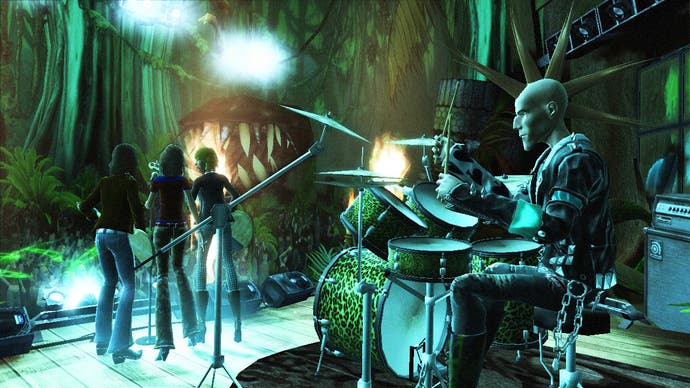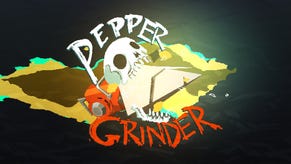Guitar Hero: Greatest Hits
Group shrug.
A very long time ago, when PlayStation 2 was still king of the world, before Wiimotes and Milo & Kate and prior, even, to the launch of Xbox 360 (celebrated with a prescient cover image by Time Magazine, I just discovered), Guitar Hero was an expensive import luxury: a novelty rhythm game made by legends of the niche and published by a company previously best known - and 'known' is pushing it - for third-party dance mats and joysticks. These days, it's big business - big enough to get Ringo and Macca out of bed anyway.
It's also a very different business. When RedOctane originally licensed the songs for Guitar Hero, little did it know we would be tripping over plastic drum-kits and impaling ourselves on microphone stands on the way to the fridge just a few years later - and let alone doing so in its name. Guitar Hero may have a music store these days, but step-daddy Activision can't just sling the original soundtrack on there without new licensing agreements and additional note charts for those of us who prefer to croon or drum.
This, presumably, explains Guitar Hero: Greatest Hits - a compilation of 48 songs that began their rhythm-action lives in Guitar Heroes 1, 2, 3, Rocks the 80s and the Aerosmith spin-off, games that were mostly released before the rise of premium downloadable content, vocal tracks and novelty drum-kits. Developed by Activision's Beenox Studios, Greatest Hits brings some of the best songs of the preceding Heroes into line with modern thinking.
Listing the songs is still a job best left to Wikipedia, but it's worth noting that Beenox hasn't just copied and pasted the original game versions and thrown in some more button prompts. For a start, all the songs are master recordings, rather than as-made-famous-bys, which was seldom the case when they were first introduced. For another thing, many of the songs have been rebalanced so that there's less emphasis on the guitar, and modern additions like those wavey slider bar bits from Guitar Hero World Tour are included.

Beenox has also sensibly used the brilliant Guitar Hero: Metallica as a template rather than Guitar Hero World Tour. That means that the Quick Play mode provides instant access to all the songs on the disc, saving you hours in Career modes, while drummers benefit from an Expert+ setting on some of the songs.
Career mode itself is also set up like the Metallica game, allowing you to unlock each group of songs by collecting a certain number of performance stars across the current tier, rather than demanding completion of every song. In this way you can often bludgeon progress by going back and perfecting a favourite rather than fluking your way to the end of something you don't like - particularly handy as the difficulty still has to be set before you embark on a Career session and can't be adjusted within. Elsewhere, there's also the Music Studio/GHTunes set-up as made famous (or not) by Guitar Hero World Tour, along with equally familiar modes like practice and battle of the bands.








